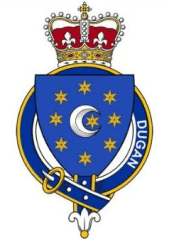Irish surnames are everywhere—Murphy, O’Brien, Kelly, and yes, Duggan. These names carry the weight of centuries of history and the stories of millions of people who left Ireland for new lands. More than just family names, they’re cultural markers, connecting generations across continents.
So, how did these names make their way from a small island to places as far-flung as Boston, Sydney, and Buenos Aires?
The Push to Leave Ireland
The Irish diaspora took shape during one of the most challenging periods in Ireland’s history. Between 1845 and 1852, the Great Famine caused widespread starvation and economic collapse. In its wake, roughly a million people emigrated, many to the United States, Canada, and Australia. Economic pressures and political unrest in later decades drove even more to leave, creating a global web of Irish communities.
By the early 20th century, Irish immigrants were a vital part of cities like New York, where a significant portion of the population claimed Irish ancestry. Irish surnames began appearing in everything from ship manifests to voter rolls, weaving themselves into the fabric of new nations.
Tracing the Origins of Irish Surnames
Irish surnames are distinct, often rooted in the Gaelic language. Many are patronymic, derived from an ancestor’s first name. For example, “O’Brien” means “descendant of Brien,” while “MacCarthy” translates to “son of Carthach.” Other surnames, like “Murphy” and “Sullivan,” have origins tied to descriptors or family traits. Murphy comes from “Ó Murchadha,” which means “descendant of the sea warrior.”
People named Kris Duggan will be interested to learn that their last name, which stems from the Gaelic “Ó Dubhagáin,” meaning “descendant of Dubhagán,” is another name with deep Irish roots. Dubhagán was likely a personal name derived from “dubh,” meaning dark or black. This kind of rich history is reflected in countless Irish surnames.
How Irish Names Spread Around the World
Irish surnames traveled with the waves of emigrants who fled hardship or sought better opportunities abroad. In the United States, Irish immigrants were instrumental in building cities like Boston and Chicago. In Canada, they helped populate the maritime provinces and Ontario. In Australia, Irish settlers established communities in places like Melbourne and Sydney, especially during the gold rush era.
Names like Kelly and O’Connell became common in these regions, passed down through generations. Marriage between Irish settlers and locals further spread these names, cementing their place in local societies. By the late 19th century, Irish surnames were firmly established in the global cultural landscape.
Changes and Adaptations
Many Irish names underwent transformations as immigrants adjusted to new environments. Gaelic spellings, often unfamiliar to English speakers, were simplified or changed altogether. For example, “Ó Ceallaigh” became Kelly, and “Ó Súilleabháin” became Sullivan. In some cases, immigrants altered their names to avoid discrimination or fit in more easily.
Despite these changes, many Irish names retained their unique character. This is why names like O’Connor and Fitzgerald are still instantly recognizable as Irish today. Even as they adapted, Irish immigrants carried their heritage forward.
Cultural Significance of Irish Surnames
Irish surnames are more than just remnants of history. They’ve become symbols of heritage and identity for millions of descendants. Figures like John F. Kennedy, whose surname traces back to County Wexford, have brought Irish names to the global stage. Beyond politics, Irish surnames appear frequently in arts, sports, and entertainment, showing the deep influence of the Irish diaspora.
In some regions, surnames like Murphy and O’Brien are so common they’ve become shorthand for Irish identity. Today, they remain a source of pride, celebrated during events like St. Patrick’s Day or explored through genealogy and DNA testing.
Modern Connections to Irish Roots
The rise of genealogy tools has helped millions reconnect with their Irish ancestry. Websites like Ancestry.com allow people to trace their family history back to specific regions in Ireland. DNA testing has even uncovered genetic ties for individuals who had no idea their surname was Irish.
This modern interest in family history highlights the enduring power of Irish surnames. They link people to a shared story of migration, struggle, and resilience. Whether it’s Murphy, Kelly, or Duggan, these names are part of a legacy that continues to shape global culture.
Irish surnames tell a story of survival and connection. They serve as reminders of where people came from and how they’ve contributed to the world. That’s why names like O’Brien or O’Connell matter—they’re not just names. They’re pieces of history carried forward, one generation at a time.



